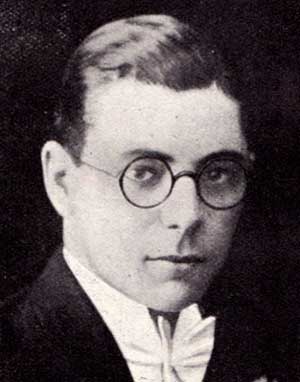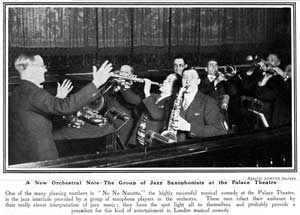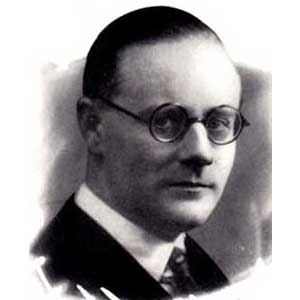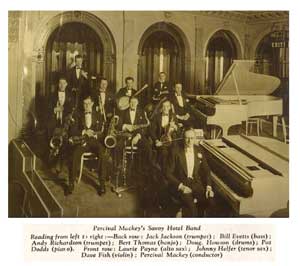Thomas Percival Montague Mackey:
(1 June 1894, Paddington London – 23 November 1950 Edgeware, Middlesex) PERCIVAL MACKEY
Percival Mackey was a British pianist, composer, arranger, bandleader, publisher and band agent. He is best known for his work as a composer and musical director for over sixty films from 1933 to 1951.
He learned to play piano and at only 14 was playing in touring shows. As part of the show, he played accompaniment to silent films. At 18, he joined the Royal Irish Animated Picture Company in Ireland.
He served with the 3rd Battalion Durham Light Infantry during WW1. After the war he returned to silent cinema and did some theatre work. He also formed a music publishing and orchestrating company.
TIMELINE:
- 1919: Mackey was offered his first position in a Dance Band.
- 1921: Mackey set up in partnership with likeminded Tony Lowry,” as full time arrangers and, ‘syncopated orchestra providers’, known as Mackey and Lowry Ltd”. Mackey formed the Broadway Five performed both for dancing and to accompany cabaret shows.
- 1922-23: The Broadway Five recorded their first tracks for Columbia. In mid 1923 Tony Lowry took over duties with the Broadway Five while Mackey joined the US band leader Jack Howard at the Hotel Metropole Midnight Follies Band as pianist. In late 1923, Mackey joined the prestigious Jack Hylton Band as pianist and arranger.
- 1924-early 1925: With the Hylton Band, Mackey played Dance music and Variety shows. The band recorded extensively and used Mackey and Lowry Ltd for a lot of orchestration and arrangements.
- 1925-26: Mackey and Lowry Ltd were employed to provide arrangements and a pit band for the new show ‘No No Nanette’. The show was a huge success and set the course for Mackey’ career as a musical director and a prolific recording artist (over 100 tracks were recorded during this period).
- 1927: Mackey and Lowry ltd. was dissolved amicably. They remained friend and worked together on later projects. Percival Mackey joined with James MacDonagh and Leslie MacDonnell to form another very successful publishing company. ‘Publishers and Orchestrators – Providers of Dance Bands, Orchestras, Orchestrations, Band Books, etc.’. They became known as the ‘Three Mac’.
- Mackey, busy as ever also formed and lead a band at the Ambassador Club with vocalist Sam Browne. He finished his recording contact with Columbia and started recording for the Edison Bell Company under the names Percival Mackey and his Kit-Cat Band and The Riviera Club Dance Orchestra.
- 1928: Mackey went on tour with his band. By the middle of the year he was putting together another pit band for the review ‘Will O’ the Whispers’. He also fitted in a month long tour to Berlin and continued recording, now for the Metropole / Piccadilly label.
- 1929: Mackey became the musical director of the musical comedy, ‘Merry Merry’ followed by ‘Follow Through’. He also recorded his first film work; a short as ‘Percival Mackey and his Trio’, for British Sound Film Productions.
- 1930: Percival Mackey struck gold with a new outfit of some of the best musicians in Britain and a residency at The Savoy Hotel as Percival Mackey’s Savoy Hotel Band. He now moved back to recording for Columbia Records and by the end of the year was working on a new production ‘Stand Up and Sing’.
- 1931: Mackey finished his residency at the Savoy and worked on several reviews as musical director. He also became musical advisor/arranger to the Paramount British Film Company. He would compose, orchestrate and conduct. A new career in film began. As If that wasn’t enough work, he also returned to leading a band at the Savoy Hotel and continued recording. By the end of the year, he had left the Savoy and began touring.
- 1932: Mackey continued his film work, played at several clubs and hotels and appeared in a short Pathe clip from Leicester Square Theatre featuring Jimmy Mesene on vocals. •
- 1933: As musical director Mackey appeared with his band in two films, ‘This Week of Grace’, starring Gracie Fields, and ‘This is the Life’. He also wrote several scores and was offered the job of musical director for the US musical play ‘The Gay Divorce’ starring Fred Astaire.
- 1934: Mackey decided to go into theatrical production. “Happy Weekend” opened to weak response and after taking the show on tour, Mackey gave up on theatre production and concentrated on operating his many bands and his work as musical director for many films.
- 1935: With Ray Noble leaving for a career in the USA. Mackey took over the New Mayfair Orchestra.
- 1936-39: Percival Mackey continued to provide several bands for shows and reviews as well as being musical director for a large number of films.
- 1939-1945: The war years were tough on the entertainment business but Mackey threw himself into working on even more shows and films. He became a regular favourites on the Home and Forces Services of the BBC.
- 1945-47: Mackey continued to provide band for shows but now more so in name only, leaving the day to day running of the bands to others. He concentrated on films as musical director and composer.
- 1948-49: Mackey’ agency was now flourishing. He continued in film but wound down his work with bands.
- 1950: Mackey launched a few more of his touring variety shows but with his agency’ success with stars like Bob Monkhouse he was doing less and less work with shows. Thomas Percival Montague Mackey died from a heart attack on 23 November 1950, aged just 56.
The Bowlly connection:
- In April 1928, Mackey recorded several sided for Piccadilly two of which featured vocals by Al Bowlly. “Up In The Clouds” and “When The Lilac Blooms Again” as Percival Mackey & his Concert Orchestra on Piccadilly and as The Ever-Bright Boys on Metropole.



